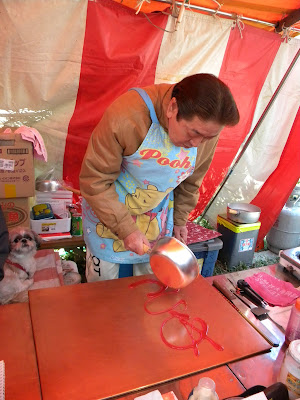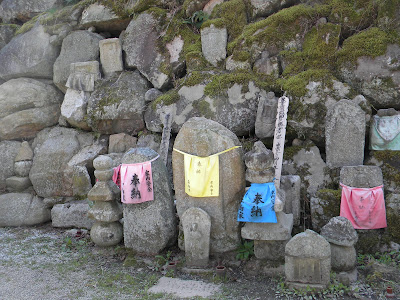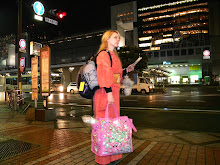I am an expert at all things that are not Korean. You may not believe this. And I may not believe this. But all the Korean employees at my workplace unequivocally believe this. They believe it the same way 4-year-olds believe in Santa Claus. And with utter confidence in my far-reaching knowledge of all things not Korean, they ask me for information regarding words in French, German, Portuguese, etc.
Sadly, though, I am not what you'd call a "language person." It's true that while in university, I took one year of accelerated classes in Italian and was always at the top of my class, but in spite of my almost-adequate grasp of Italian while in uni, my knowledge of it has receded in the years since so that now the only thing I feel confident about in Italian is how to order an ice cream. Really, this is the most important phrase anyone can use in Italy, anyway, so that's all good. But to return to the shores of my now-distant main point, my knowledge of ordering ice cream has become the basis for my understanding of all Romantic languages, so that I feel sufficiently informed to take a stab at defining pretty much any foreign word that my coworkers present to me.
Also, I cheat and use the Internet.
"Oh yes, ajdiwureojaksldfj, yes, of course I'm familiar with it. I'm just a little busy now. Give me a minute and {Google, Google, Google, Wiki, Wiki}, yes, it means 'the velvet canvas on which religious icons are painted by Polish farmhands.' And it's pronounced *imitates cat unsuccessfully trying to rid
As you might imagine, this system works very well for me. By which I mean, I still have a job.
Sometimes, though, my coworkers will hand me a paper with a word that's -- not to be judgmental or anything -- totally weird.
I take the piece of paper and squint at it. Pretend astigmatism makes an excellent stall for time.
"That's not an English word. No, it's sure not," I'll observe as I stare at a word in Yiddish? Russian? Something-stan?
"Errm, it's not even written in the Roman alphabet," I'll then point out, in what I intend as a mild protest.
"Yes, that's true," my coworkers will respond, smiling. "And how do you pronounce it?"
The result of which is that one of our language CDs may or may not have a speaker mentioning farflugen where a Yiddish-Russian-Something-stan word would actually be more appropriate. Because farflugen is the most exotic-sounding word I know. I think the Swedish chef from The Muppets used to say it, so I guess that makes farflugen Swedish. Who says you can't learn by watching prodigious quantities of TV?
Sometimes, to be perfectly frank, I feel I'm not the best person for this job. However, I seem to be the company favourite, as out of the three native English speakers in my office, I am decidedly the one most often chosen to answer questions about all things not Korean.
I once overheard a conversation between a Korean coworker and one of the other native English speakers, Evil Disney Princess (a moniker bestowed for her unique ability to say the meanest things imaginable in a voice sweet as honey), about a certain English word. I didn't hear the whole convo, but distinctly heard EDP advise that "The dictionary is wrong about that word."
Perhaps that is why I've been designated as Captain Polyglot. I never tilt at Oxford or Webster. And as for Roget, I feel absolute adulation, affection, devotion, emotion, passion, rapture, relish, and respect.
Anyway, I was just kidding about that farflugen stuff. But if you ever hear the word "onomatopoeia" seemingly used out of context on an EFL CD. Well, that one just might be me.















